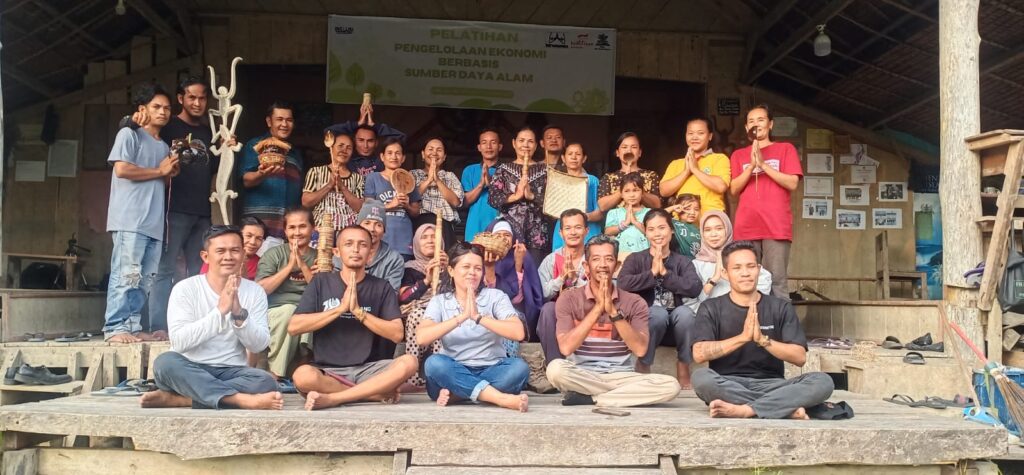Marginal groups (women, children and people with disabilities) are often categorized as People with Social Welfare Problems (PMKS). Namely, someone who is unable to carry out their social functions because of an obstacle, difficulty or disorder. To break this stigma, the Citra Mandiri Foundation (YCMM) also held training in Natural Resources (SDA)-based economic management for the Mentawai indigenous community. This event was held at the UMA Jaraik Sikerei Studio, Muntei Village, South Siberut District on 25-27 October 2023.
This training is designed to train and give greater responsibility to the participants. About how to do work that can make money by utilizing the potential of natural resources around them. One way is to work in the field of producing various kinds of crafts from natural materials.
Apart from that, this training also aims to encourage participants' understanding of the importance of economic empowerment for women and other vulnerable groups. The aim is to minimize gaps with other community groups in their social environment.
YCMM assesses that the Mentawai indigenous people actually have the basic knowledge and skills to produce handicraft items. They are able to make various household items, kitchen utensils, and hunting equipment. Where all the ingredients come from nature and are processed using simple traditional work techniques and equipment.
The goods or craft products made are generally limited to meeting household needs. Although there are several handicraft products that have been marketed at the local level among hamlet and village residents. Craft businesses, especially those using weaving techniques, are considered quite friendly for women and people with disabilities. Because most of the work processes can be done at home.
The main materials are quite abundant, including bamboo, rattan, wood, leaves and thatch. Not only that, ingredients that come from the kitchen, which often end up as waste, are collected and reused. This not only reduces production capital, but also reduces household waste.
In this training, facilitators and participants share knowledge and opinions about craft products that have the potential to be developed into a source of income. From the results of the discussion, there are many handicraft products from the Mentawai traditional community which have wide market potential if processed well.
From this training, participants are able to identify the type of product and target market segment or consumer. For three days, the participants were guided by Jimmi, an MSME actor from Sioban Village. So far, Jimmi has been active in producing handicraft objects in particular souvenirs typical Mentawai.
The participants who attended consisted of 13 men and 15 women – three of whom were people with disabilities. They make various handicraft products in the form of weaving, carvings and carvings that have Mentawai characteristics to add selling value. As well as product finishing techniques using simple technology. Apart from the practice of making craft products, this training also teaches about marketing strategies.
Mr. Ajel, a person with physical disabilities, feels very happy and lucky to be able to take part in this training. Even though he had to travel for two days to get to the event location. Since he suffered an amputation on the sole of his right foot due to poison from a snake bite last year, he has not been able to work in the fields and forests as usual. The family's economic life was finally taken over by his wife.
“There is a lot of knowledge gained during training that can be developed into a source of income. I got new ideas, skills and hope to make money by making crafts. "It can also be done at home without requiring a lot of foot movement which has been hampering all this time," explained Mr Ajel.
The Head of Muntei Village, Paulus Salakopak and the Secretary of BPD Nemnem Leleu, Teondorus Tatebburuk, promised to support the craft businesses of marginalized groups in their respective villages. One of them is providing a promotional room or house at the village office and marketing on village social media for promotion.
Other support was also provided by Yosep Sagari as head of the UMA Jaraik Sikerei studio. He will help promote and market handicraft products from marginalized groups from three villages conventionally and digitally marketing.


